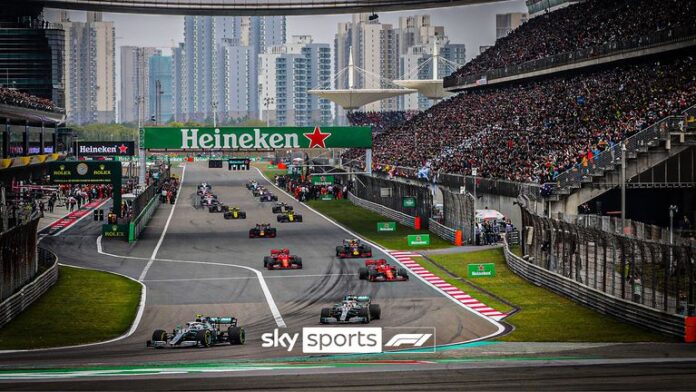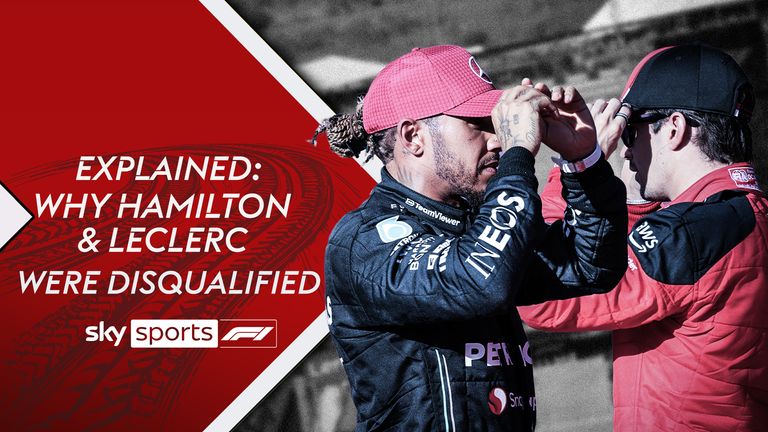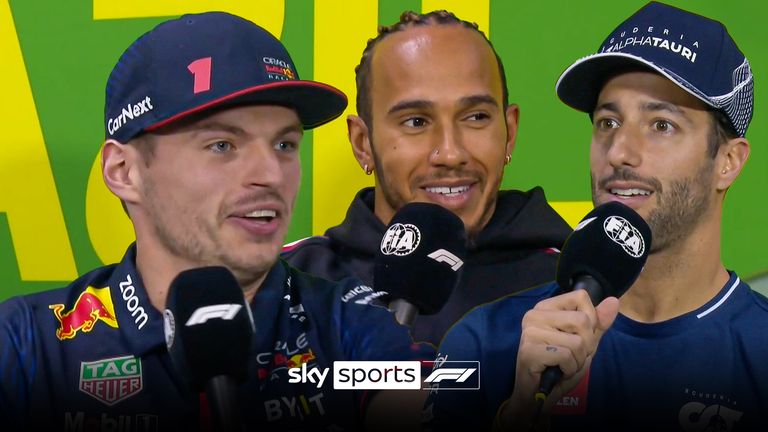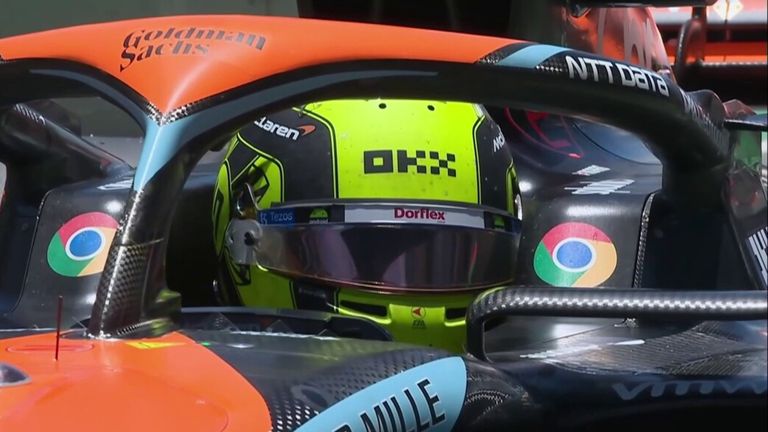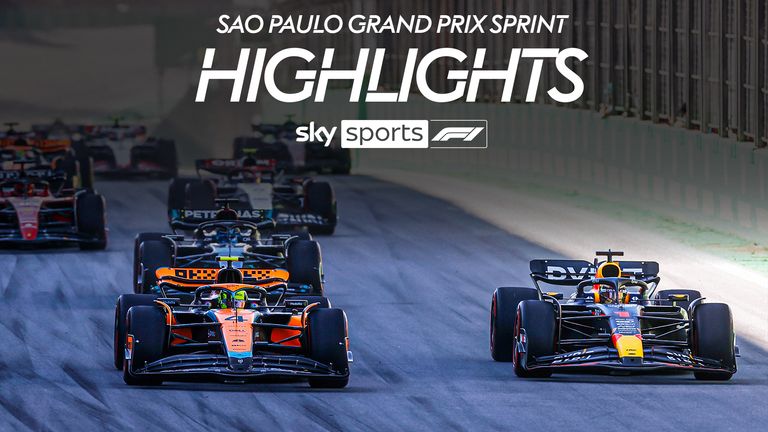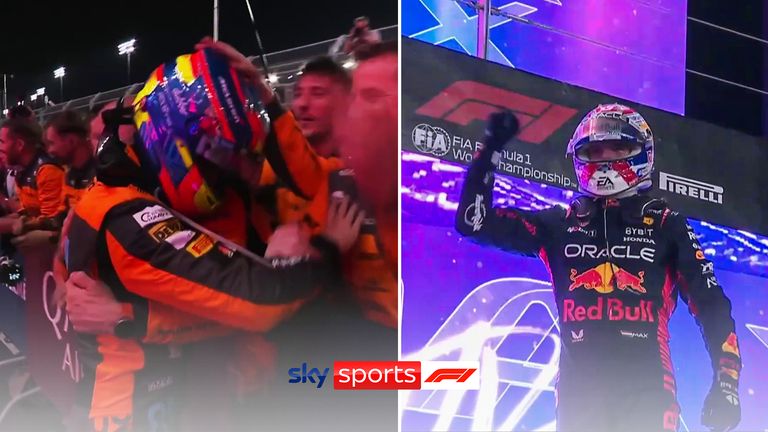Formula 1’s new Sprint weekend format for 2024 explained ahead of its debut at the Chinese Grand Prix.
What’s changed for 2024?
There has been a very significant tweak to the running order of Sprint weekends.
As was the case last year, the weekend will begin with a single free practice session on Friday, but from there on it’s all change.
Rather than Qualifying for Sunday’s race, Sprint Qualifying (formerly known as the Sprint Shootout) will follow later on Friday.
Saturday will then begin with the 100km Sprint contest, with full Qualifying to follow later in the day, setting the grid for the Grand Prix on Sunday.
The change of order allows for a crucial switch of parc ferme restrictions, which last year prevented teams from making significant setup changes from the moment full Qualifying began on a Friday through until the end of the weekend.
The new running order will still see cars go into parc ferme when the first competitive session – Friday’s Sprint Qualifying – begins, but they will then be released from the restrictions after Saturday’s Sprint.
Teams will have the chance to use the knowledge they’ve gained to alter setups ahead of full Qualifying, at the start of which they will once more be locked in for Sunday’s race.
Why has there been a change?
There had been a growing feeling in the paddock during last season’s Sprints that giving teams just 60 minutes to prepare for the entire weekend was too much to ask.
While the system provided the potential for more surprises and an initial shifting of the pecking order, there were also downsides.
Both Lewis Hamilton and Charles Leclerc were disqualified from the United States Grand Prix after their cars failed a physical floor and plank wear inspection after the race, with the former’s Mercedes boss Toto Wolff afterwards citing the challenges of the format.
The situation highlighted the challenge faced by teams, particularly on a bumpy surface like the one at Austin’s Circuit of the Americas.
A repeat of a situation like that should be avoided, while there is another significant potential benefit.
As world champion Max Verstappen – the most vocal critic among drivers of the Sprint format – has repeatedly said, the 100km has largely acted as a preview of the Grand Prix, if conditions remain similar, with no major changes allowed.
Under the new rules, there could be significant changes to performance from Saturday to Sunday, which could completely alter the pecking order for Sunday’s race.
How does Sprint Qualifying work?
There is no change to the format of Sprint Qualifying, with the most notable alteration being the dropping of its former title, the Sprint Shootout.
The session will follow the same format as last season, with each of its three parts shorter than full qualifying to address engine and tyre concerns the teams had before last year’s changes.
SQ1 is 12 minutes.
SQ2 is 10 minutes.
SQ3 is eight minutes.
The aim is that each car would only have one flying lap in each session, although two runs could be done in SQ1 while SQ2 and SQ3 would allow time for two timed laps without a pitstop in between attempts.
The other significant difference between Sprint Qualifying and full Qualifying are restrictions on tyre usage in the former.
While drivers are free to use any of their available tyres in regular qualifying, in the Sprint Shootout they are only allowed to run one set of tyres in each part.
A new set of medium tyres are mandatory in SQ1 and SQ2, while a set of tyres is mandatory in SQ3, but they don’t have to be new.
The 2023 rules had initially made a new set mandatory in each of the three parts of Sprint Qualifying, but the regulations were changed mid-season after some teams created an undesirable situation by intentionally leaving themselves unable to compete in SQ3 as they used up their new sets of soft tyres in earlier sessions.
What is the point systems for the Sprint?
Points for the Sprint in 2024 remain unchanged.
A total of 36 points are on offer for the top eight finishers in Saturday’s race. This is allocated as follows:
1st place – 8 points
2nd place – 7 points
3rd place – 6 points
4th place – 5 points
5th place – 4 points
6th place – 3 points
7th place – 2 points
8th place – 1 point
Unlike in the Sunday Grand Prix, there is no point for fastest lap in the Sprint.
And the points certainly can be crucial: Max Verstappen last season became the first driver to clinch a world title in a Sprint on the Saturday in Qatar.
Are there pit stops in the Sprint?
Pit stops are few and far between given how short a Sprint is.
Unlike the Grand Prix, there is no mandatory change of tyres required and, unless cars suffer damage or puncture or it rains, don’t expect them to leave the action on track for the pit lane between lights out and the chequered flag.
Drivers are free to run on whatever tyre compound – hard, medium or soft – that they wish.
Where will Sprint weekends take place in 2024?
As was the case in 2023, there will be six Sprint weekends this season.
The first will be hosted by China, as the Shanghai International Circuit hosts F1 for the first time since 2019.
The fact that teams have no data from the circuit with this generation of cars promises an unpredictable weekend.
The first two Sprints of the year will be back-to-back, as Miami hosts a Sprint weekend for the first time at the start of May.
In June, Austria will host a Sprint for a third successive season, before Austin’s Circuit of the Americas retains Sprint hosting duties at the United States Grand Prix in October.
The Sao Paulo Grand Prix maintains its status as the only track to have hosted a Sprint in every season since the format was introduced in 2021.
Qatar holds the final Sprint weekend on the penultimate weekend of the season.
Who’s won the previous Sprints?
Max Verstappen has won seven of the 12 F1 Sprint races to have taken place from 2021 to 2023.
The Dutchman won four of last season’s six events, but actually sealed the world title when coming second to McLaren’s Oscar Piastri in Qatar.
The other driver to win one was Verstappen’s Red Bull team-mate Sergio Perez, who triumphed in Azerbaijan when he appeared to be threatening a title challenge in the early stages of the season.
Seven-time world champion Lewis Hamilton has never won a Sprint, but Mercedes have three victories – two from Valtteri Bottas and one from the Finn’s replacement George Russell.
Next up is the return of the Chinese Grand Prix on April 19-21, which is also the first Sprint weekend of the season. You can watch every session live on Sky Sports F1 and steam every F1 race and more with a NOW Sports Month Membership – No contract, cancel anytime
Ad content | Stream Sky Sports on NOW
Stream Sky Sports live with no contract on a Month or Day membership on NOW. Instant access to live action from the Premier League, EFL, F1, England Cricket, Tennis and so much more.
Source : Sky Sports



